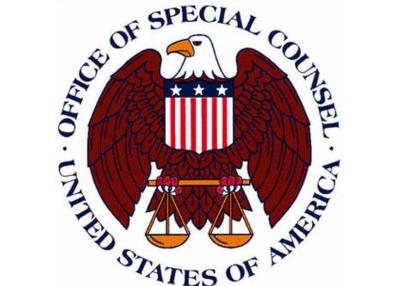Tue, Jun 19, 2018
Whistleblower Reveals FAA Allowed Airplanes To Fly With Expired Airworthiness Certificates, Registrations
The U.S. Office of Special Counsel (OSC) has sent letters to the President and Congress disclosing that safety inspectors at the FAA have improperly approved aircraft for commercial operations without first reviewing critical safety information that in some cases would have prohibited their operation. Moreover, due to lapses in oversight at FAA’s Civil Aviation Registry, aircraft have operated in the National Airspace System without a valid registration or airworthiness certificate.

“When the FAA does not know the location of an aircraft, the owner of an aircraft, or whether the owner might be deliberately attempting to circumvent safety regulations, that’s a serious problem,” said Special Counsel Henry J. Kerner. “Thankfully, because a whistleblower came forward, the FAA now appears to be taking this issue seriously and has initiated corrective action to ensure inspectors don’t cut corners and are better equipped to keep our airspace safe.”
After a whistleblower disclosed problems with FAA’s aircraft oversight, OSC referred the case to the U.S. Department of Transportation (DOT) to investigate. The agency substantiated the whistleblower’s allegations and concluded that many Aviation Safety Inspectors at FAA are not sufficiently familiar with the requirement that all aircraft exemptions must be reviewed before the aircraft is cleared to fly. The report also found that FAA’s guidance on inspection requirements is inadequate.
Based on the DOT’s findings, the FAA issued several recommendations for corrective action. The FAA established a task force to analyze approximately 1,000 exemptions and records for over 11,000 aircraft to determine airworthiness actions necessary to ensure their safety. In addition, the FAA is revising its guidance to provide clarity and ensure inspectors review all limitations and exemptions prior to aircraft being cleared to fly.
(Source: Office of Special Counsel news release)
More News
Pilot Also Reported That Due To A Fuel Leak, The Auxiliary Fuel Tanks Were Not Used On June 4, 2025, at 13:41 eastern daylight time, a Piper PA-23, N2109P, was substantially damage>[...]
Have A Story That NEEDS To Be Featured On Aero-News? Here’s How To Submit A Story To Our Team Some of the greatest new stories ANN has ever covered have been submitted by our>[...]
From 2023 (YouTube Edition): Reflections on War’s Collective Lessons and Cyclical Nature The exigencies of war ought be colorblind. Inane social-constructs the likes of racis>[...]
Aero Linx: Colorado Pilots Association (CPA) Colorado Pilots Association was incorporated as a Colorado Nonprofit Corporation in 1972. It is a statewide organization with over 700 >[...]
High Speed Taxiway A long radius taxiway designed and provided with lighting or marking to define the path of aircraft, traveling at high speed (up to 60 knots), from the runway ce>[...]
 NTSB Prelim: Piper PA-23
NTSB Prelim: Piper PA-23 ANN FAQ: Submit a News Story!
ANN FAQ: Submit a News Story! Classic Aero-TV: One Mans Vietnam
Classic Aero-TV: One Mans Vietnam ANN's Daily Aero-Linx (07.03.25)
ANN's Daily Aero-Linx (07.03.25) ANN's Daily Aero-Term (07.03.25): High Speed Taxiway
ANN's Daily Aero-Term (07.03.25): High Speed Taxiway



